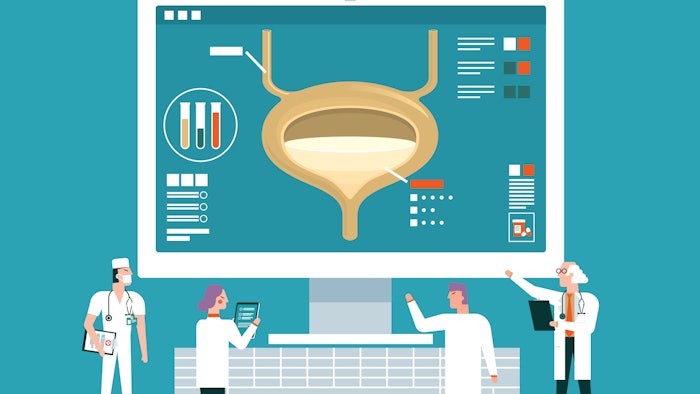P2s spotlight groundbreaking clinical trials
These sessions are set to redefine urological care.

The 2025 AUA Annual Meeting in Las Vegas will again shine a spotlight on practice-changing, paradigm-shifting research with a slate of high-impact Plenary sessions known as P2s. These presentations—reserved exclusively for the most compelling studies in urology—highlight clinical trials expected to alter the trajectory of patient care and surgical practice.
“These are high-profile studies that haven’t been presented before and will have an immediate effect on attendees’ clinical practices,” said David Penson, MD, MPH, AUA Secretary. “They include randomized clinical trials of novel agents and new surgical approaches that will really change the way we practice urology.”
This year, 10 P2 trials will take the Plenary stage, covering a diverse range of urologic conditions. Notably, many of the 2025 presentations are centered on bladder and prostate cancer, kidney stones and BPH (benign prostatic hyperplasia). The emphasis reflects an exciting trend: an increase in novel treatment strategies and device innovations for some of urology’s most common and challenging conditions.
Key highlights for 2025 include:
- Hydration as Prevention: A randomized clinical trial examining the effect of hydration on the prevention of urinary stones—an area of growing interest for cost-effective, patient-centered prevention.
- Innovation in BPH Treatment: A 12-month randomized, sham-controlled study evaluating a novel prostatic urethral stent shows promise as a minimally invasive option for managing BPH.
- Bladder Cancer Breakthroughs: Several trials focus on improving outcomes in high-risk, non–muscle-invasive bladder cancer (NMIBC), including:
- TAR-200 monotherapy outcomes from the SunRISe-1 study
- Results from the CREST study showing improved event-free survival with sasanlimab plus BCG
- Final data from the BOND-003 trial of intravesical cretostimogene grenadenorepvec for BCG-unresponsive CIS
The P2s aren’t just academic exercises—they are designed to influence clinical decision-making in real time. From new drug approvals to surgical innovations, these studies are vetted for their immediate applicability and long-term relevance.
Attendees can expect to leave the sessions with new insights that can directly inform their daily practice.
“The takeaway is simple: We want urologists to walk away from these presentations and rethink how they approach certain diseases,” said Dr. Penson. “Whether it’s trying a new approach to BPH or adopting new standards for NMIBC, these trials are meant to be actionable.”











